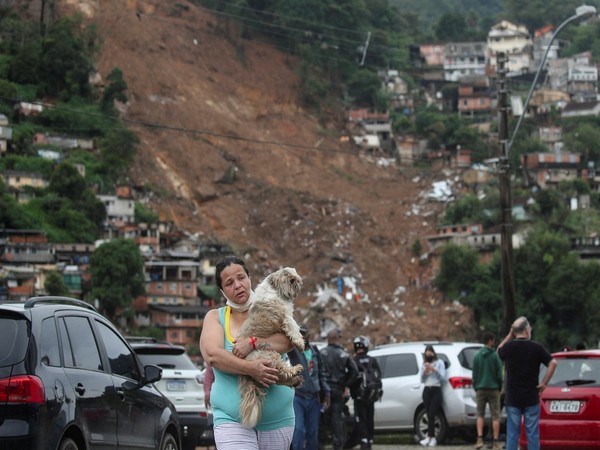UNHCR commends Brazil's outstanding solidarity and inclusive approach to refugees
In São Paulo and Manaus, Mazou explored innovative projects that empower refugees through employment, fostering their integration into local communities.

Raouf Mazou, the Assistant High Commissioner for Operations at UNHCR, has commended Brazil's outstanding solidarity and inclusive approach toward refugees, emphasizing the country's commitment to their protection and the search for lasting solutions. During his weeklong visit to Brazil, Mazou highlighted the nation’s effective policies that ensure refugees have access to essential services and opportunities.
“Brazil's commitment to inclusive refugee policies shows that documentation, asylum, and other forms of protection, combined with access to jobs, livelihoods, education, and health, are the best way to arrive at solutions,” Mazou stated.
In São Paulo and Manaus, Mazou explored innovative projects that empower refugees through employment, fostering their integration into local communities. Additionally, in Brasilia, he met with national authorities and inaugurated the second consultation of the Cartagena+40 Process, which emphasizes inclusion and integration of refugees.
The Cartagena+40 Process marks the 40th anniversary of the 1984 Cartagena Declaration on Refugees, which has significantly influenced regional cooperation and protection measures for refugees in Latin America and the Caribbean. The process is set to adopt a new plan for 2024-2034 by the end of this year.
During the Cartagena+40 event, Mazou stressed the importance of a comprehensive approach that involves governments, the private sector, civil society, multilateral development banks, municipalities, and refugee-led organizations. He noted that integrating forcibly displaced people into host communities enables them to rebuild their lives and contribute positively to society, thereby reducing the need for dangerous onward movements.
Mazou's visit coincided with severe floods in southern Brazil, particularly affecting the state of Rio Grande do Sul. The disaster has resulted in over 100 deaths and impacted more than 2 million people, including around 43,000 refugees and individuals needing international protection, predominantly from Venezuela and Haiti. UNHCR is assisting with the humanitarian response by providing relief items, technical assistance on shelter management, and reliable information to refugees and migrants.
“UNHCR stands in solidarity with refugees, migrants, and Brazilians who have lost their homes and belongings, and with families who lost loved ones in this tragedy,” Mazou said. He highlighted that extreme weather events, exacerbated by climate change, disproportionately affect the most vulnerable populations, including refugees and indigenous communities.
Mazou encouraged Brazil to continue its supportive practices for refugees, such as issuing humanitarian visas and applying the regional refugee definition from the Cartagena Declaration, which is integrated into national laws. Humanitarian visas offer safe and legal pathways for asylum-seekers to reach Brazil, while the regional refugee definition has streamlined asylum claim analyses. As a result, nearly 130,000 individuals from Afghanistan, Burkina Faso, Iraq, Mali, Syria, and Venezuela have been recognized as refugees through this simplified process.
Currently, Brazil hosts over 730,000 individuals needing international protection, including 144,000 recognized refugees, with the majority being Venezuelans (132,645), followed by Cubans (19,633), Syrians (4,056), and Afghans (1,165). Additionally, there are over 68,000 pending asylum cases from individuals of 155 different nationalities.
- READ MORE ON:
- Raouf Mazou
- UNHCR
- Brazil










